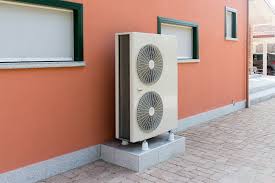Heat pumps are increasingly gaining attention as an efficient and green alternative to conventional cooling and heating systems. They operate by transferring heat instead of creating it, making them a green option for maintaining comfortable indoor temperatures year-round.
What Is a Heat Pump?
The heat pump (tepelné čerpadlo) is a gadget that transfers heat from one place to another. It is comprised of an outdoor unit as well as an indoor unit that is connected via refrigerant lines. The system is powered by refrigerant which absorbs and releases heat as it flows through the system. In winter, it pulls heat from the air outside (even when it’s cold) and uses it to warm your home. In the summer the reverse process occurs The pump extracts heat from inside and expels it out, thereby cooling your home.
Types of Heat Pumps
Air Source Heat Pumps (ASHPs) The ASHPs are the most common and work by exchanging heat with outside air. They are further divided into:
Air-to-Air Heat Pumps: Transfer heat from the air outside and inside.
Water-to-Air Heat Pumps transfer heat into the water in a hydronic system, which then heats your home via radiators or underfloor heating.
Ground Source Heat Pumps (GSHPs) also referred to as geothermal heat pumps, these systems exchange heat with the ground. They are typically more efficient than air source pumps since ground temperatures are relatively constant throughout the year.
Water source heat pumps These use water from a well, lake or river to serve as a medium for exchange of heat. They aren’t as popular, however they can be extremely efficient in the event that you have a suitable water source close to.
Benefits of Heat Pumps
The efficiency of energy: Heat pumps can provide three times more heating energy to homes than the electrical energy they consume. This high efficiency can lead to substantial savings on energy costs when compared to conventional heating systems.
The environmental impact: Through decreasing reliance upon fossil fuels, pumps can help reduce carbon emissions, which makes them a greener choice for heating and cooling.
Versatility: Heat pumps offer both heating and cooling capabilities that make them a flexible choice for all-year-round comfort.
Longevity: With proper maintenance heating systems can last 15-20 years. This is a lot longer than many traditional heating and cooling systems.
Considerations
Initial cost: Heat pumps can have an upfront cost that is higher in comparison to conventional systems. However, this is usually balanced through lower running costs and government incentives.
Efficiency at extreme temperatures: While modern heat pumps work well in a wide temperature range but their efficiency can decrease in colder climates. It’s crucial to choose a system suited to the local climate.
In summary the heat pumps are an investment that is beneficial for green energy and sustainability. Their ability to provide both heating and cooling, combined with long-term savings and reduced carbon footprint makes them an attractive alternative for modern homes.

